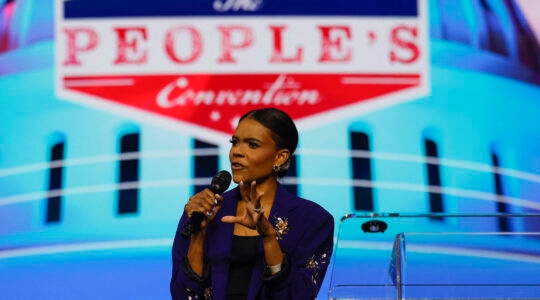More than three-quarters of the U.S. Senate has signed an AIPAC-backed letter to President Obama urging that "every effort should be made to realize" a Arab-Israeli peace and laying out certain "key principles" that should be followed to achieve it.
The letter was spearheaded by Sens. Christopher Dodd (D-CT), Johnny Isakson (R-GA), Arlen Specter (D-PA) and John Thune (R-SD) and signed by a total of 76 senators. A similar House letter is at 220 signatures and still gathering additional House members, according to a Hill source.
The letter states that while "the United States has an important role to play, the parties themselves are the ones who will need to negotiate and live with whatever agreement is reached" and "we must take into account the risks" Israel will face in any peace agreement.
"Without a doubt, our two governments will agree on some issues and disagree on others, but the United States friendship with Israel requires that we work closely together as we recommit ourselves to our historic role of a trusted friend and active meditor," states the letter.
The missive also emphasized that the U.S. must "insist on the absolute Palestinian commitment to ending terrorist violence" and hopes that the president will "promote far greater involvement and participation by the Arab states" in the process.
Getting 76 senators to agree on anything is impressive, but there were a few names who didn’t sign on to the letter who stood out — including Senate Majority Leader Harry Reid (D-Nev.) and Senate Majority Whip Dick Durbin (D-Ill.). A Reid spokesperson told us that while the senator "certainly supports the sentiment, as Majority Leader he generally does not sign on to sign-on letters." Durbin’s office did not return a message, but his absence stands out because his election is a part of AIPAC lore. The story of how pro-Israel activists were key to Durbin’s 1982 victory over vocal Israel critic Rep. Paul Findley (R) in Illinois is a story that has been told to at least two generations of AIPAC activists.
All 12 Jewish senators signed onto the letter. In addition, Sen. Jeff Merkley (D-Ore.), who was the only member of the Senate which got backing from J Street in the 2008 elections and received $91,000 from the group’s PAC, signed the letter.
The full letter is after the jump and the full list of signatories can be seen here:[[READMORE]]
Dear Mr. President:
We are writing out of our shared concern over 60 years of conflict in the Middle East, and a mutual desire to see peace between Israel and its Arab neighbors. While the obstacles are formidable, we agree with you that every effort should be made to realize that peace.
Many years of strong, principled US engagement led to historic peace treaties between Israel and both Egypt and Jordan. We believe that achievement of a lasting peace between Israelis and Palestinians requires adherence to some key principles. These include an understanding that while the United States has an important role to play, the parties themselves are the ones who will need to negotiate and live with whatever agreement is reached. As we work closely with our democratic ally, Israel, we must take into account the risks it will face in any peace agreement. Without a doubt, our two governments will agree on some issues and disagree on others, but the United States friendship with Israel requires that we work closely together as we recommit ourselves to our historic role of a trusted friend and active mediator.
We must also continue to insist on the absolute Palestinian commitment to ending terrorist violence and to building the institutions necessary for a viable Palestinian state living side-by-side, in peace with the Jewish state of Israel. The more capable and responsible Palestinian forces became, the more they demonstrate the ability to govern and to maintain security, the easier it will be for them to reach an accord with Israel. We encourage you to continue programs similar to the promising security assistance and training program led by Lieutenant General Keith Dayton, and hope that you will look for other ways to improve Palestinian security and civilian infrastructure.
Finally, we hope that you will promote far greater involvement and participation by the Arab states both in moving toward normal ties with Israel and in encouraging moderate Palestinian elements. Everyone in the region has a stake in the success of these negotiations and should contribute to a lasting and comprehensive resolution.
We look forward to working closely with you on these critical issues.
Sincerely,
JTA has documented Jewish history in real-time for over a century. Keep our journalism strong by joining us in supporting independent, award-winning reporting.




